Unpaid carers: Wife of man with brain cancer fights for support
- Published
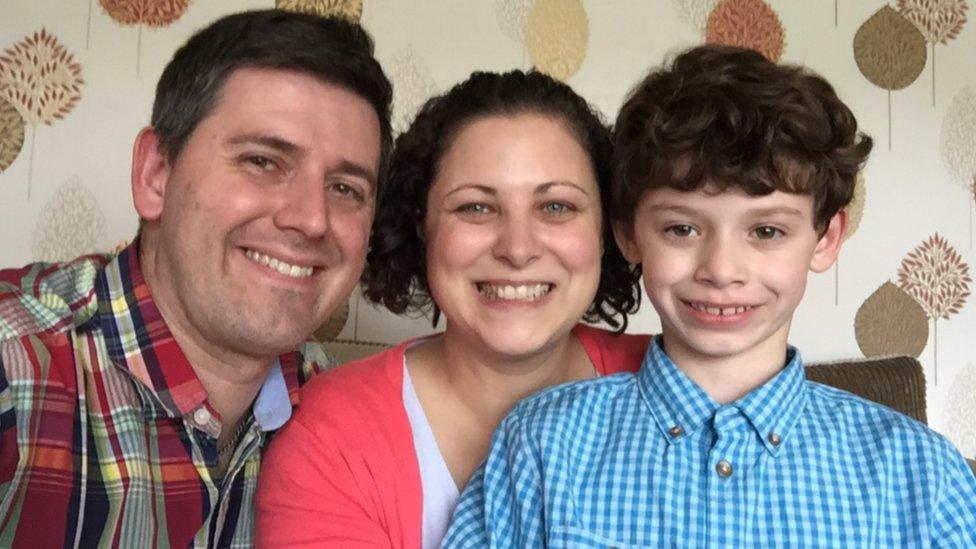
Helen Todd with David and Josh before her husband became ill
A Bangor woman who cares for her husband who has brain cancer and son with Type One diabetes says she has had to fight to get support.
Helen Todd is one of thousands of Northern Ireland's unpaid carers.
She says her mental health has suffered and she is "grieving" for the life she had planned and for her husband who is no longer the man she married.
Hundreds of people like Ms Todd are becoming carers each week, says the charity Carers NI.
Her son Josh was diagnosed with diabetes when he was four.
Ms Todd has to be up at least four times a night to help Josh with his insulin.
"Last Saturday I was up with him every hour," she says.
"You are responsible for keeping your child alive, giving them the insulin so they can eat.
"It's planning everything so they can have as normal a life as possible but at the same time their immune system is killing them."

Carers NI says unpaid carers are making up for gaps in the health and social care system
Ms Todd's world changed in July 2017, when her husband, David, suffered a seizure: He was diagnosed with a brain tumour and had extensive brain surgery.
A quarter of the tumour had to be left untouched because it was too dangerous to remove.
"It's incurable, it's life-limiting, David will never be in remission," she says.
"My husband isn't here any more really, but I have to take care of him. I am exhausted. I have had three nights' sleep on my own terms in five years," Ms Todd adds.
She says she felt "abandoned" during the Covid-19 lockdown and that a care package the family had was "hit and miss".
"Every step of the way I've had to fight to get support and so often when you're looking for help the path is blocked by a lack of funding, bureaucracy or processes in the health service that don't have the service user at their centre," says Ms Todd.
Gaps in health system
There are more than 290,000 people providing care for a sick or disabled family member in Northern Ireland, according to analysis carried out by the Centre for Care, a combination of UK universities and carers charities.
That's one in five of the adult population.
Some 125,000 people became unpaid carers in Northern Ireland between 2010 and 2020, says Carers NI, and about 240 people are joining that number each week.
In a report published for Carers' Rights Day, Carers NI calls for "a step change" in how carers are supported by the authorities.
It says unpaid carers are having to make up for gaps in the health and social care system.
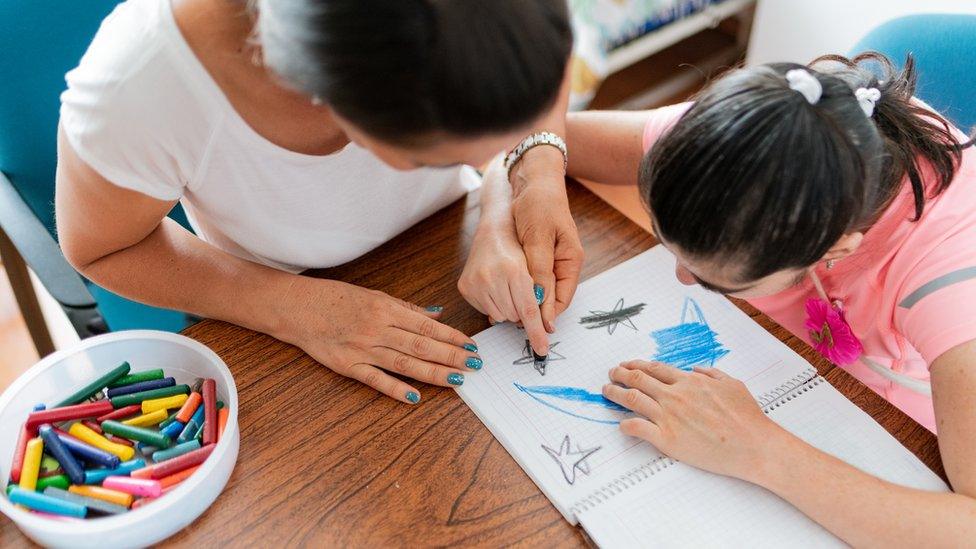
The Department of Health says "considerable additional investment" will be required
The Carers NI report suggests unpaid carers save the health and social care system £4.6bn a year in care costs.
Craig Harrison from the charity describes the number of people providing unpaid care as "astonishing".
"Far too often they're having to sacrifice their own wellbeing and quality of life to do so. Unpaid caring is linked to poorer health, weaker household finances and worse life prospects," he says.
'Improvements are required'
The charity is calling for greater support to allow carers to care safely, take regular breaks from caring and lead better lives of their own.
"Reforming health and social care services and providing better financial support through the welfare system are important, but neither can be achieved while political stalemate remains in Stormont," Mr Harrison says.
The Department of Health (DoH) says that "in recognition of the need to continue and enhance the supports available to carers, former health minister Robin Swann launched the Support for Carers' Fund at the end of March 2021".
"This fund, worth over £4m, is continuing to provide much-needed financial resources to the community and voluntary sector to support carers," it adds.
The department says it accepts that "further improvements are still required in the areas of day care and short breaks" and that work is ongoing with health and social care trusts.
It says a report on a recent Reform of Adult Social Care consultation should be completed by December 2022, followed by an implementation plan, but warns "considerable additional investment will be required to take forward many of the proposals".
Related topics
- Published8 November 2022
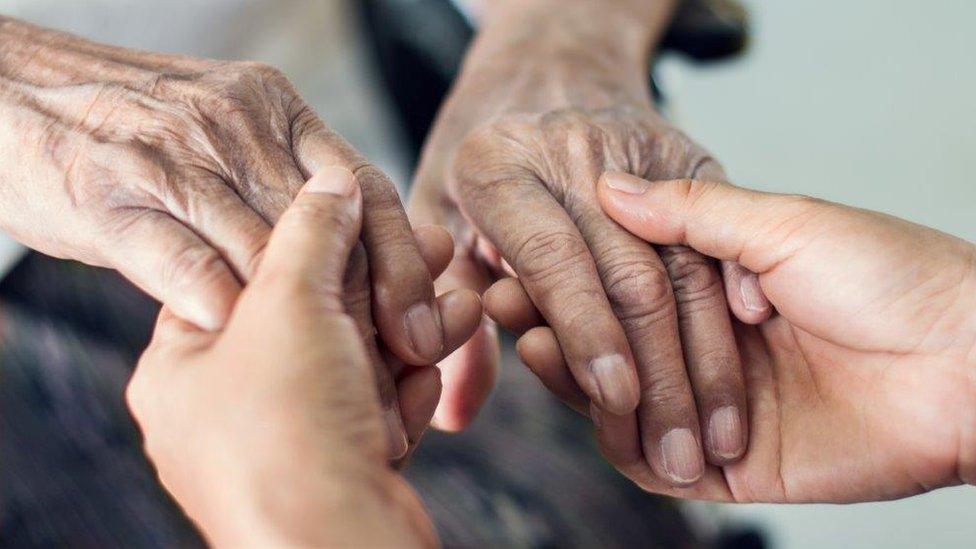
- Published22 September 2022
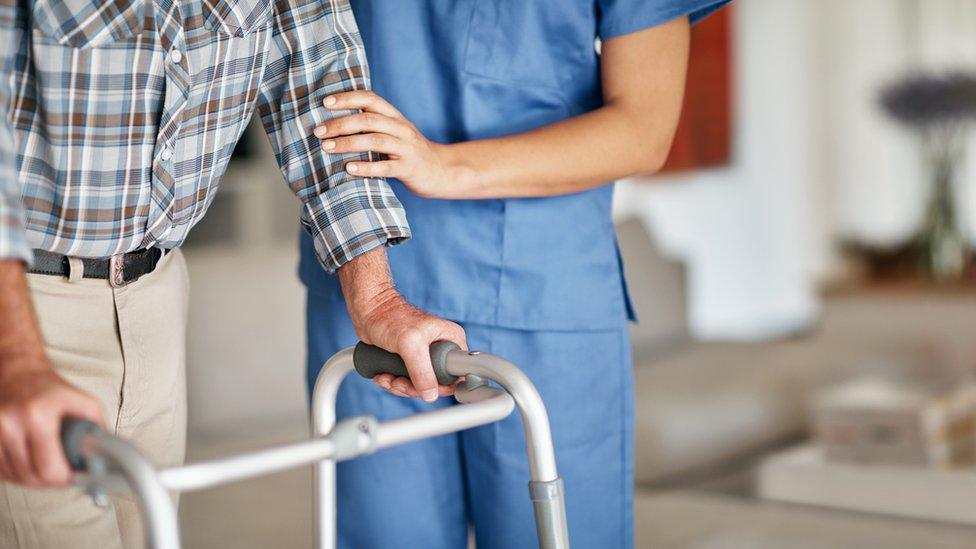
- Published21 November 2019
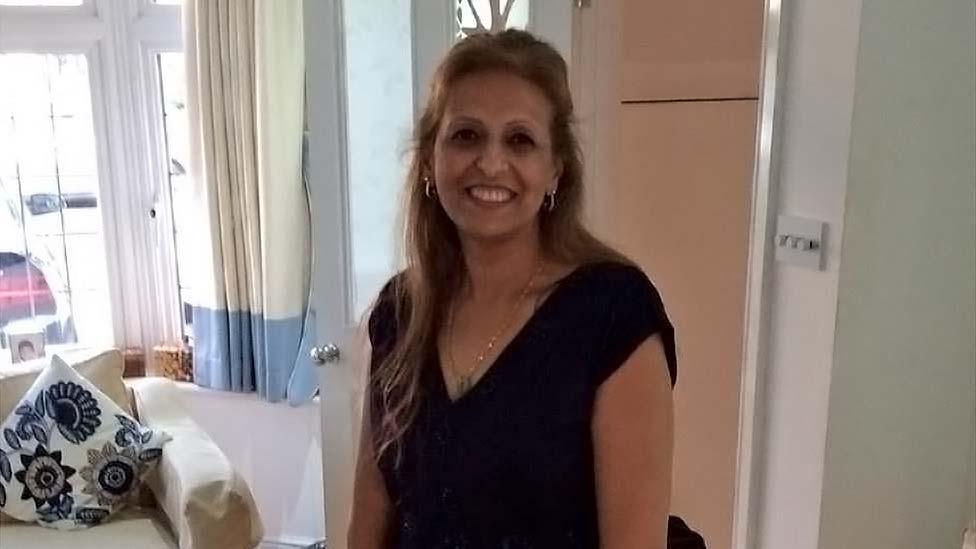
- Published2 August 2019
